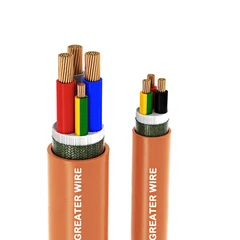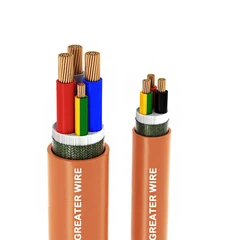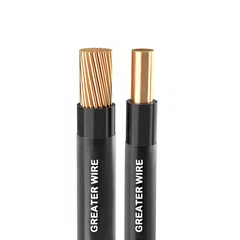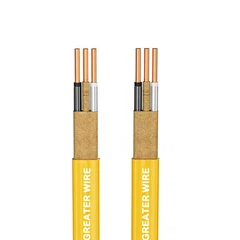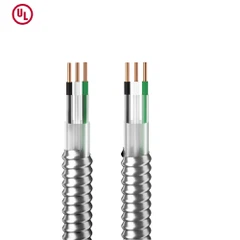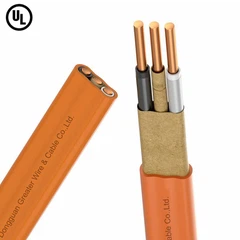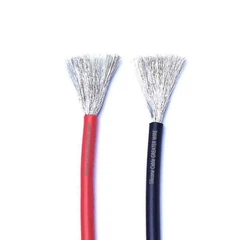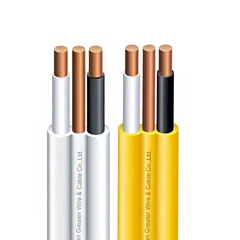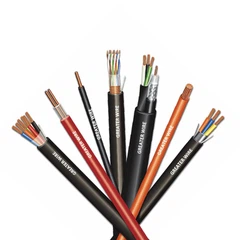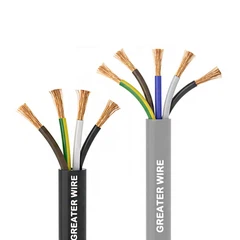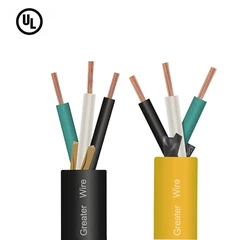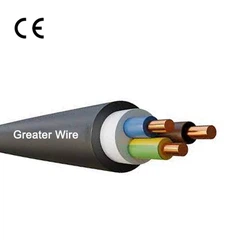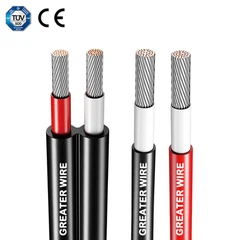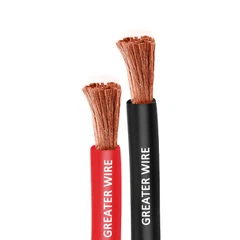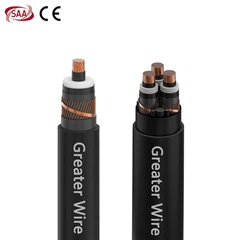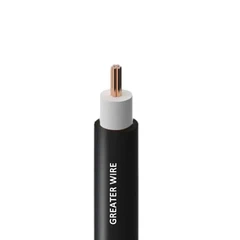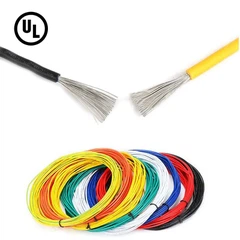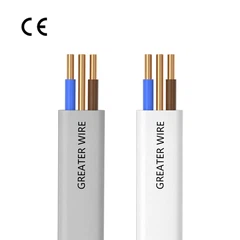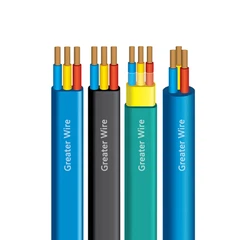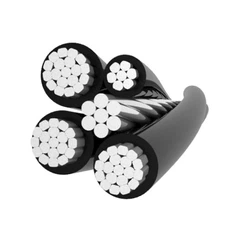1. Understanding XHHW Wire: A Brief Overview
XHHW wire is a thermoset-insulated cable designed for both dry and wet locations. Its insulation-cross-linked polyethylene (XLPE)-provides excellent resistance to heat, moisture, chemicals, and abrasion. Rated for up to 90°C in dry conditions and 75°C in wet environments, XHHW wire is commonly used in conduit systems, service entrance applications, and underground installations.
However, the true backbone of any XHHW cable lies in its conductor. Conductors are the metallic cores that carry electrical current, and their material, size, and construction directly influence the wire's ampacity, voltage rating, and installation feasibility.
2. Types of Conductors in XHHW Wire
Conductors in XHHW wire are classified based on their material composition and construction. Below, we break down the most common types of conductors used:
2.1 Copper Conductors
Copper has long been the gold standard for electrical conductors due to its exceptional conductivity, flexibility, and corrosion resistance. In XHHW wire, copper conductors are often used in applications requiring high ampacity and reliability.
Advantages:
Highest electrical conductivity (approximately 100% IACS*).
Superior resistance to oxidation and thermal stress.
Ideal for high-performance circuits, such as data centers and industrial machinery.
Disadvantages:
Higher cost compared to aluminum.
Heavier weight complicates large-scale installations.
*IACS: International Annealed Copper Standard
2.2 Aluminum Conductors
Aluminum conductors, particularly XHHW aluminum wire, have gained popularity as a cost-effective alternative to copper. The development of AA-8000 series aluminum alloys has addressed historical concerns about aluminum's tendency to oxidize and creep (deformation under pressure).
Advantages:
Lower material cost (aluminum is ~50% cheaper than copper by weight).
Lightweight design simplifies handling and installation.
Suitable for long-distance power distribution (e.g., service entrance cables).
Disadvantages:
Lower conductivity (61% IACS) requires larger conductor sizes to match copper's ampacity.
Requires anti-oxidant paste and proper termination techniques to prevent overheating.
A prime example is 2 AWG XHHW aluminum wire 1000V, which balances affordability and performance for medium-voltage applications.
2.3 Copper-Clad Aluminum (CCA) Conductors
CCA conductors feature an aluminum core coated with a thin layer of copper. This hybrid design aims to combine aluminum's cost benefits with copper's surface conductivity.
Applications:
Budget-conscious projects where full copper conductors are unnecessary.
Low-voltage circuits, such as lighting and control systems.
Limitations:
Not recommended for high-current or high-temperature environments.
Susceptible to galvanic corrosion if improperly installed.
3. Spotlight on 2 AWG XHHW Aluminum Wire 1000V
The 2 AWG XHHW aluminum wire 1000V exemplifies the versatility of aluminum conductors in modern electrical systems. Let's dissect its key attributes:
3.1 Conductor Specifications
Size: 2 AWG (American Wire Gauge), equivalent to 33.6 mm² cross-sectional area.
Material: AA-8000 series aluminum alloy.
Voltage Rating: 1000 volts, suitable for industrial and utility applications.
Temperature Rating: 90°C in dry conditions, 75°C in wet conditions.
3.2 Performance Characteristics
Ampacity: Approximately 100 amps (NEC Table 310.16).
Durability: XLPE insulation resists moisture, oils, and sunlight.
Cost Savings: Aluminum's lower density reduces material expenses by 30–50% compared to copper.
3.3 Common Applications
Industrial Machinery: Powers motors, transformers, and control panels.
Renewable Energy Systems: Connects solar arrays and wind turbines to inverters.
Underground Feeders: Ideal for wet or corrosive environments.
4. Choosing the Right Conductor for XHHW Wire
Selecting the optimal conductor depends on project requirements, budget, and environmental factors. Here's a quick guide:
| Factor | Copper | Aluminum |
|---|---|---|
| Cost | High | Low |
| Weight | Heavy | Light |
| Ampacity | High (smaller gauge) | Lower (larger gauge) |
| Installation Ease | Moderate | Easy (due to lightness) |
| Lifespan | 40+ years | 30+ years (with maintenance) |
For high-voltage applications like 2 AWG XHHW aluminum wire 1000V, aluminum strikes a practical balance between performance and affordability.
5. Installation Best Practices for XHHW Aluminum Wire
While aluminum conductors are cost-effective, improper installation can lead to failures. Follow these guidelines:
1.Use Antioxidant Paste: Prevents oxidation at termination points.
2.Torque Connections Properly: Aluminum expands/contracts more than copper; under-torqued lugs can loosen over time.
3.Avoid Mixed Metals: Pair aluminum wires with compatible connectors to prevent galvanic corrosion.
6. Future Trends in Conductor Technology
The wire and cable industry is innovating to enhance conductor efficiency:
1.Composite Conductors: Aluminum cores reinforced with carbon fiber for strength.
2.High-Temperature Alloys: Aluminum alloys capable of withstanding 150°C+ environments.
3.Sustainability: Recyclable aluminum conductors reduce carbon footprints.
In the wire and cable industry, quality and safety are of paramount importance. Dongguan Greater Wire & Cable Co., Ltd. has the most advanced production equipment, and its products have passed multiple UL certifications such as UL83, UL44, UL719, UL493, UL62, UL758, UL1569, UL66, UL1063, UL1277, and strictly comply with international standards such as NEC, CSA, RoHS, REACH, etc. Our products include THHN WIRE, TC-ER CABLE, XHHW WIRE, NM-B CABLE, MC CABLE, UF-B CABLE, MTW CABLE, which are suitable for residential, industrial, construction, energy, communication and other fields. Our direct sales model reduces the middlemen and allows you to get the best quality cables at the most advantageous prices. We promise fast delivery and quality service to make your project progress more smoothly! Contact us now to get a quote!

